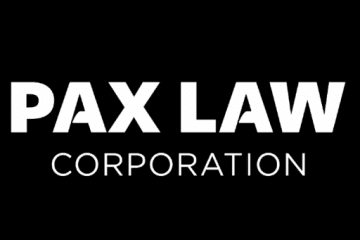ID verification plays a crucial role in Vancouver’s real estate transactions, ensuring authenticity, safeguarding transactions, and protecting homeowners. In a city known for its booming real estate market, the need for a reliable and secure ID verification process cannot be overstated. From the initial conveyance process to the final home purchase, ID verification serves as a vital tool in maintaining the integrity of Vancouver’s real estate industry.
Table of contents
- The Importance of ID Verification in Vancouver’s Real Estate Transactions
- Ensuring Authenticity: ID Verification in Vancouver’s Conveyance Process
- Safeguarding Transactions: The Vital Role of ID Verification in Vancouver Real Estate
- Protecting Homeowners: ID Verification’s Significance in Vancouver’s Home Purchase Process
- Frequently Asked Questions
The Importance of ID Verification in Vancouver’s Real Estate Transactions
In Vancouver’s real estate transactions, ID verification holds immense importance. When buying or selling a property, it is essential to verify the identity of all parties involved, including the buyer, seller, and their respective legal representatives. By ensuring that the individuals involved are who they claim to be, ID verification helps prevent fraud and identity theft, providing a level of trust and confidence in the transaction process. This verification process helps to protect the interests of all parties and maintain the integrity of Vancouver’s real estate market.
Ensuring Authenticity: ID Verification in Vancouver’s Conveyance Process
The conveyance process in Vancouver involves numerous legal and financial steps, making it crucial to ensure the authenticity of all parties involved. ID verification plays a vital role in this process by confirming the identity of the lawyer or legal representative handling the transaction. By verifying their credentials and confirming their identity, potential risks, such as impersonation or unauthorized representation, can be mitigated. This verification process helps maintain the authenticity of the conveyance process and ensures that the transaction is conducted by authorized individuals with the necessary expertise.
Safeguarding Transactions: The Vital Role of ID Verification in Vancouver Real Estate
ID verification acts as a crucial safeguard in Vancouver’s real estate transactions. By verifying the identities of buyers, sellers, and legal representatives, the risk of fraudulent activities such as money laundering or property scams can be significantly reduced. This verification process adds an extra layer of security to the transaction, assuring all parties involved that they are dealing with legitimate individuals. Safeguarding transactions through ID verification is essential in maintaining the reputation and trustworthiness of Vancouver’s real estate industry.
Protecting Homeowners: ID Verification’s Significance in Vancouver’s Home Purchase Process
For homeowners in Vancouver, the significance of ID verification in the home purchase process cannot be overstated. By verifying the identities of potential buyers, ID verification helps protect homeowners from falling victim to fraudulent schemes or scams. It ensures that the person purchasing the property is indeed who they claim to be and have the legal authority to do so. This verification process provides homeowners with peace of mind, knowing that their property is being sold to a genuine buyer. Protecting homeowners through ID verification is a crucial aspect of Vancouver’s real estate transactions.
In conclusion, ID verification plays a vital role in Vancouver’s real estate transactions. Whether it is ensuring authenticity in the conveyance process, safeguarding transactions, or protecting homeowners, ID verification serves as a crucial tool in maintaining the integrity and trustworthiness of Vancouver’s real estate industry. By implementing a robust and reliable ID verification process, the city can continue to thrive in its real estate market, providing a secure environment for buyers, sellers, and legal representatives alike.
Frequently Asked Questions
What is ID verification in real estate transactions?
ID verification in real estate involves verifying the identities of all parties involved in a transaction to prevent fraud and ensure authenticity.
Why is ID verification important in Vancouver’s real estate market?
Due to the high value and demand in Vancouver’s real estate market, ID verification is crucial for protecting transactions from fraudulent activities.
How does ID verification help prevent fraud in real estate?
ID verification ensures that only legitimate parties participate in transactions, reducing risks of identity theft, impersonation, and other forms of fraud.
What are the common methods of ID verification in real estate transactions?
Common methods include electronic ID verification, in-person verification, and verification through financial institutions or legal representatives.
At what stages of the real estate process is ID verification required?
ID verification is essential during the conveyance process, at the point of sale, and when signing final documents.
How does ID verification protect homeowners?
It ensures that only authorized buyers with verified identities can proceed, preventing fraudulent purchases and unauthorized property transfers.
Is ID verification mandatory in Vancouver real estate transactions?
Yes, ID verification is required by law in many cases to uphold the integrity and security of real estate transactions.
What are the risks of not performing ID verification in real estate?
Without ID verification, there is a higher risk of fraud, identity theft, and other legal issues that can jeopardize the transaction.
Can ID verification prevent property scams in Vancouver?
Yes, verifying identities reduces the likelihood of property scams by ensuring all parties are legitimate and authorized to engage in the transaction.
What role does ID verification play in the conveyance process?
In the conveyance process, ID verification ensures that the legal representatives handling the transaction are authentic and authorized.
How does ID verification ensure authenticity in real estate transactions?
ID verification confirms the identities of buyers, sellers, and legal representatives, ensuring they are who they claim to be.
How does ID verification safeguard real estate transactions?
By verifying identities, it helps prevent fraud, money laundering, and unauthorized access, adding a layer of security to the transaction.
Who is responsible for ID verification in a real estate transaction?
The responsibility often falls on legal representatives, real estate agents, and financial institutions involved in the transaction.
Can ID verification be done remotely?
Yes, many ID verification processes can be completed electronically, allowing for remote verification.
Is ID verification required for both buyers and sellers?
Yes, both buyers and sellers need to have their identities verified to ensure the security of the transaction.
How does ID verification support legal compliance in real estate?
ID verification helps meet regulatory standards, ensuring transactions comply with laws against fraud and money laundering.
What documents are needed for ID verification in real estate transactions?
Common documents include government-issued IDs, utility bills, and in some cases, financial statements or legal authorization letters.
What technology is used for ID verification in real estate?
Electronic ID verification software, biometric scanning, and digital signatures are commonly used in modern ID verification processes.
How does ID verification add value to Vancouver’s real estate market?
It builds trust and confidence, attracting buyers and investors who value secure and authentic transactions.
Can ID verification prevent identity theft in real estate transactions?
Yes, by verifying identities, ID verification reduces the risk of identity theft in real estate transactions.
How does ID verification affect the real estate transaction timeline?
While it may add a step to the process, it ultimately ensures a secure and legally sound transaction, reducing potential delays caused by fraud investigations.
What are the legal implications of failing to verify ID in real estate?
Failure to verify ID can lead to legal issues, including disputes, fraud claims, and potential liability for involved parties.
How does ID verification protect buyers in Vancouver?
It ensures that buyers are dealing with legitimate sellers, reducing the risk of scams or unauthorized property sales.
How can sellers benefit from ID verification in real estate?
It assures sellers that the buyer is credible and authorized, reducing risks associated with fraudulent buyers.
What is the conveyance process in Vancouver real estate?
The conveyance process involves legally transferring property from the seller to the buyer, requiring ID verification to confirm authenticity.
How does Vancouver regulate ID verification in real estate?
Vancouver adheres to provincial regulations requiring ID verification to prevent fraud and uphold transaction integrity.
Are there penalties for failing to verify ID in real estate transactions?
Yes, failing to verify ID can result in penalties, legal disputes, and potential loss of credibility for involved professionals.
What happens if ID verification reveals a discrepancy?
If a discrepancy is found, the transaction may be paused for further investigation to ensure the security of all parties.
Can ID verification be bypassed in a real estate transaction?
No, ID verification is essential for ensuring the legality and security of the transaction and is typically mandatory.
How does ID verification support transparency in real estate?
It ensures that all parties are who they claim to be, fostering a transparent and trustworthy transaction process.
Can ID verification detect false representation in real estate?
Yes, by confirming identities, ID verification can identify false representation and prevent unauthorized transactions.
Is digital ID verification secure in real estate transactions?
Yes, digital ID verification uses encryption and other security measures to ensure a safe and reliable verification process.
How does ID verification contribute to property security?
It ensures that transactions are conducted by legitimate parties, reducing risks of illegal property transfers.
Why is ID verification important for real estate professionals?
ID verification protects professionals from potential legal liabilities by ensuring they work with authenticated clients.
Can ID verification help prevent mortgage fraud?
Yes, verifying identities helps detect and prevent mortgage fraud by ensuring only legitimate parties access financing.
How does ID verification help in the home-buying process?
It verifies the buyer’s identity, confirming they are legally permitted to purchase the property and reducing fraud risks.
Is ID verification part of Vancouver’s real estate laws?
Yes, ID verification is generally required under real estate laws to protect the integrity of transactions and prevent fraud.
What challenges exist with ID verification in real estate?
Challenges include verifying identities remotely, detecting sophisticated fraud, and ensuring all parties comply with requirements.
How does ID verification benefit the real estate market as a whole?
It enhances market trust by ensuring transactions are legitimate, which supports a secure, thriving real estate environment.
Are real estate transactions safe without ID verification?
No, without ID verification.
Important: Please note that the information here is not meant to be legal advice. Do not solely rely on the information given here; it is important that you consult with a lawyer regarding any legal advice. Pax Law Corp. is not responsible for any reliance on the contents of this blog post. Any faces posted on this blog post is totally AI generated and they are not intended to represent any person in the real world. Any similarities are completely coincidental.



0 Comments